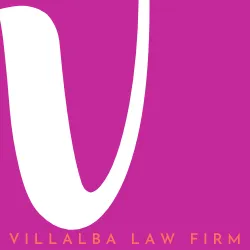You're Passionate About your Business.
That's why You Need Us to Protect It.
Villalba Law Firm Blog

Our blog is dedicated to expanding your legal mindset and empowering you with valuable information. We believe that by sharing insights and knowledge about legal strategies, we can help you navigate complexities, make informed decisions, and ultimately, unlock new opportunities for growth and success in your endeavors. Whether you're an entrepreneur, business owner, or individual seeking to understand the legal landscape better, our goal is to provide practical advice and resources that empower you to thrive in today's ever-evolving world.

All About Sole Proprietorship
“You are not your resume, you are your work" - Seth Godin
Sole Proprietorship:
A sole proprietorship is a business owned and operated by a single individual, offering full control but also bearing personal liability for debts and legal obligations. While easy to establish and manage, it lacks the legal protections of other business structures, making it suitable for small-scale enterprises with minimal risk exposure.

Sometimes starting a business can be formed with minimal planning.
What is a Sole Proprietorship?
A sole proprietorship (aka solo entrepreneurship, sole prop) is the default business you create once you start a business if you don’t register your business as another type of entity. It is considered an “unincorporated” business because it is not officially registered with the Secretary of State and has only one owner.
How is a Sole Proprietorship formed?
As soon as you start your business, you automatically have a sole proprietorship. This means, as soon as you start your side hustle or start freelancing, you automatically have a business. The good thing about this is that you don’t need to worry about any paperwork.
How is a Sole Proprietorship taxed?
The taxes for a sole proprietorship are taxed as personal income on your personal tax return. You’ll fill out and report business income and losses on “Schedule C” of your personal tax return. You will have to pay federal and state taxes on business income as well as self-employment tax. In addition, you will have to pay Medicare and Social Security taxes. Some owners choose to pay their taxes quarterly so that they can avoid a larger tax bill in April.
Can I Hire Employees if I Have a Sole Proprietorship?
Yes, you can. You will need to obtain an Employer Identification Number with the IRS. Your EIN number is a distinct number that will identify your company, like a social security number for your business.
Can All of My Contracts Be in the Name of My Business?
Yes, definitely. Even though your business is not registered, it’s still a business. All your contracts should be in the name of your business if they are for your business. Additionally, you can register your business name as a DBA (doing business as) or Fictitious Name with your state.
What are the Benefits of a Sole Proprietorship?
It’s simple to set up and doesn’t require a lot of initial paperwork, so it’s easy to start. You can obtain business bank accounts with your EIN, market your business, and enter contracts. It’s the fastest way to legitimize your side hustle, freelancing, or new business. It’s also easy to transition into an LLC.
As with any business, you should keep good business records of your purchases and things you’ve done for your business. This means keeping track of your expenses and treating your business as a separate entity from you, personally.
What are the Disadvantages of Having a Sole Proprietorship?
Since sole proprietorships don’t have any liability shields, you are open to any kind of liability, including for the actions of your employees. This means will be personally responsible for the debts of your business, loans, and lawsuits (whether they are for breach of contract, personal injury, trademark or copyright infringement, etc. or otherwise), so your personal assets are at stake.
Self-employment taxes could also be a downside if you have a highly profitable business. Self-employment taxes can be pretty high if you don’t have the tax benefits of an LLC or corporation.
Is a Sole Proprietorship Right for Me?
This is a personal choice. If you’re looking to get into business right away, you can automatically start a sole proprietorship. Just be aware of the liability risks and what you need to do with regards to your personal taxes. If liability is a concern and you want to take advantage of the benefits of a registered company or you’re looking for investors, an LLC or corporation may be a better choice.
1329 E Kemper Rd. Suite 4100C
Cincinnati, OH 45245

serving clients virtually nationally and internationally
Licensed in Ohio
© 2024 Villalba Law Firm
This website doesn't give financial or legal advice. The stuff you see here, like text, images, and videos, is just for learning purposes. It's not a replacement for professional advice. We can't guarantee the info is accurate, so use the website at your own risk. Using our website also doesn't create an attorney-client relationship.



